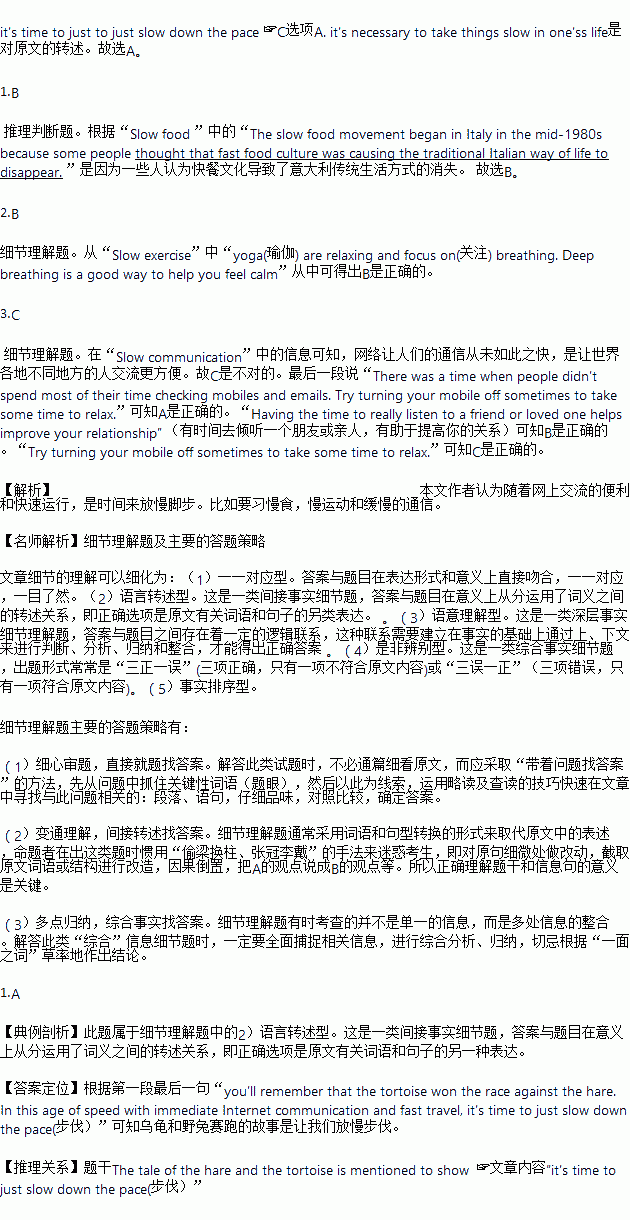题目内容
If you know the tale(故事) of the hare(野兔) and the tortoise(乌龟).you’ll remember that the tortoise won the race against the hare. In this age of speed with immediate Internet communication and fast travel, it’s time to just slow down the pace(步伐).
Slow food
The slow food movement began in Italy in the mid-1980s because some people thought that fast food culture was causing the traditional Italian way of life to disappear. The movement believes that we should enjoy mealtimes as a pleasure while also understand more about where your food comes from. A key approach(方法) to slow food is taking your time when eating. For example, by waking up ten minutes earlier than usual you have more time to get ready so you don’t have to rush your breakfast.
Slow exercise
Measured exercises such as yoga(瑜伽) are relaxing and focus on(关注) breathing. Deep breathing is a good way to help you feel calm. Try slowing your breathing down to 10-12 deep breaths every minute. Breathe in slowly and deeply into the bottom of your lungs (肺). Stop for a moment, and then breathe out slowly. As you breathe out, allow your body to relax.
Slow communication
The wide use of the Internet has meant communication has never been faster. We are able to send an email to someone of the other side of the world as quickly as to the person sitting next to us. While this change is unbelievable, the amount of infor mation we receive each day through mobiles and the Internet can be distracting (令人分心的). There was a time when people didn’t spend most of their time checking mobiles and emails. Try turning your mobile off sometimes to take some time to relax. Having the time to really listen to a friend or loved one helps improve your relationship (关系).
mation we receive each day through mobiles and the Internet can be distracting (令人分心的). There was a time when people didn’t spend most of their time checking mobiles and emails. Try turning your mobile off sometimes to take some time to relax. Having the time to really listen to a friend or loved one helps improve your relationship (关系).
1.The tale of the hare and the tortoise is mentioned to show .
A. it’s necessary to take things slow in one’s life
B. speed plays the most important role in a race
C. you have to use tricks in order to win
D. we should learn a lesson from the tale
2.Why did the slow food movement start?
A. To protect people from the harm of fast food.
B. To prevent some old traditions from disappearing.
C. To correct some people’s wrong ideas about health.
D. To help people develop a good work and rest habit.
3.In the passage, yoga is suggested as a way of exercise because .
A. it can greatly improve our physical health
B. it’s very relaxing and helps us calm down
C. it takes less time and space
D. it doesn’t need any skills
4.The writer may NOT agree with the idea that .
A. mobiles and emails are wasting much of our time
B. a face-to-face talk is better than one over the phone
C. the Internet also makes communication inconvenient
D. turning the mobile off can also make us feel relaxed

